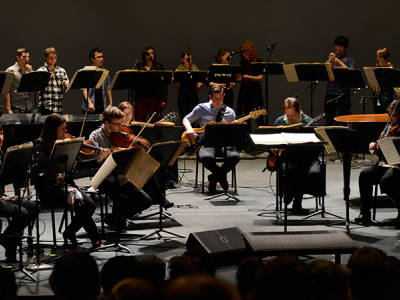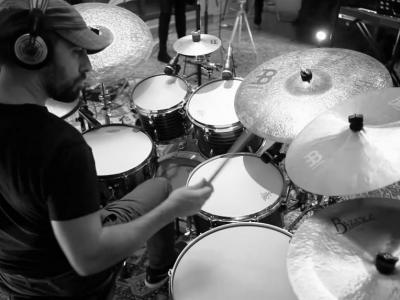What does a Soloist do?
Although many players are skilled enough to perform the demanding and flashy solo parts included in certain classical pieces, a small group of musicians make a living from doing so: soloists. The classical equivalent of rock stars, soloists forgo the settled, stable life of an orchestra member so that they can perform center stage with orchestras across the world, which benefit in turn from the soloist's fame and appeal.
Being a world-class player with excellent chops and a wide repertoire gets soloists on stage, but individuality is more critical to success.
It's a common misconception that being a soloist is about technical ability. Yes, soloists must have world-class chops and a wide repertoire—but equally important is being an excellent collaborator and quick learner, capable of forging a high level of musical cohesion with a conductor and orchestra in the span of only one or two rehearsals. Additionally, charisma and stage presence are vital to soloists, who are almost always the center of the audience's attention. Finally, what truly distinguishes a soloist from a member of the orchestra is individuality: the soloist's job is to stand out, moving and captivating audiences with their passionate performance and singular musical interpretation.
At a Glance
Most soloists pursue their careers aggressively from a young age, bursting onto the world stage when they win a high-level music competition and begin to tour. Many of the most prestigious competitions are overseas, which can make participation an expensive endeavor. High placement in a competition can lead to a long and successful career as a soloist, a wealth of performance opportunities, and even the potential for major projects as a recording artist. On the other hand, low placement can make it difficult to justify continuing and trigger a switch to a career as an orchestra musician, concertmaster, or conductor.
Winning a prestigious competition is widely regarded as the best way to kick-start one's career as a soloist. From there, it's a matter of getting an agent, booking a tour, and setting out to test oneself on stages across the world.
As freelancers, soloists don't have the steady, reliable paycheck and job security of an orchestra member. Instead, they must market themselves, actively seek out performance opportunities, take on side gigs like recording projects, and negotiate sponsorships—each a major source of their livelihood.
- High-level technical skills on a major solo instrument, typically violin, cello, piano, or voice
- Live performance
- Wide classical repertoire
- Musical notation
- Collaboration
- Self-promotion
- Networking
Classical conductor Kenneth Woods puts it well: “If you play well, connect with audiences, and are easy to work with, nothing else really matters.” It's not easy to create a smooth, coordinated performance from only one or two rehearsals, and for this, soloists must be humble, communicative, and collaborative. It’s also important to be reasonable and respectful with the musicians and conductors who are a soloist's frequent collaborators. After all, a soloist who is beloved by audiences but hated by orchestras is liable to have a short career.
Travel is nearly endless—by plane, train, and occasionally car. As soloists become more popular, the area in which they perform expands. Beginning soloists might stick to a small region, but the most successful perform in world tours and hop back and forth between continents.
Soloists tend to be partnered with agencies, which take a percentage of the performance fee in exchange for connecting the soloists with high-level performance opportunities, but this doesn’t remove the need for constant self-promotion. Being a soloist is lucrative compared with being an orchestra member, but it’s still a freelance career—and an exceedingly competitive one with high expenses. Soloists go in and out of demand, but good budgeting and nerves of steel can help bridge slower periods.














